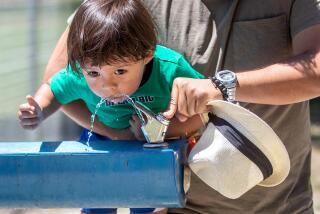Planning a Summer Schedule With Time for Work and Play
After the school doors close this year, call a family meeting within 24 hours to correlate summer expectations. Children feel free, but for parents summer can mean more work and less time to do it.
The family meeting is an excellent way to create an atmosphere of fairness, to lay out expectations and to present a plan for fun. Both children and parents have assumptions about what will take place during the summer months, but if you don’t take time to discuss it, you all may be disappointed.
Before the children get into lazy patterns, point out chore expectations. A check-off chart is a good tool to reinforce good habits for a couple of weeks. Discuss routine. When do you expect morning chores to be done? What happens if they aren’t finished? It will be easier if you do not allow TV or play until the children have picked up their room, made the bed, eaten breakfast, gotten dressed and taken care of house or yard chores.
One family puts up a sign “Work Time” on the front door and another uses a flag as a signal to neighborhood children that their children are not ready to play yet. Keep it simple. The children should be able to finish their work in an hour or two. If it takes longer, the children either have too much to do, or need adult help.
Summertime need not be as structured as winter, but you need a simple routine to take care of the necessities. Set aside time during the week for work, fun and rest. Normally, Monday is our day for deep cleaning and laundry, whereas Tuesday and Thursday are for special excursions.
One year, as a young mother, I was overwhelmed with the thought of 12 weeks at home with my five little children. Then I hit on the idea that a teacher certainly would not go into the school year without a curriculum, so as a professional mother, I would do well to think ahead for summer. My object was to have variety and to keep it fairly inexpensive. With a toddler and baby, I couldn’t be running around all the time.
I picked a simple theme for each week of the summer and presented it at our weekly meeting, where we brainstormed ideas for projects, activities and excursions that related to the theme.
I tried to save some special things to do in August when boredom is especially prevalent. We budgeted a weekly allowance for excursions and supplies at home. This simple curriculum gave us something to look forward to, to talk about and plan for. For example, at the meeting I asked what kinds of things we could do with balloons--paint funny faces on them, blow up one, write a message on it and mail it to Grandma, have a water-balloon fight, watch a hot-air balloon race and read a book about balloons.
This idea may sound corny, but it worked, and that was one of our best summers. Working parents can apply this idea and do things with the children for an hour in the evening or on the weekend. If your children are home, leave things for them to do while you are away.
What about a chocolate week or day, or a paper theme where you fold different types of airplanes or do simple origami? For animal week you could mold animals out of clay, draw pictures and go to the zoo. School supply week might be the time for children to write out a list of needs and earn money by doing odd jobs for Mom and Dad and then shop. What about a dough week where you make cookie dough, pizza dough and bread dough? You could have a dress-up day for children to put on adult clothes or costumes. Choose topics that parallel interests. Under a fabric theme they could make a family flag with glue and scraps of cloth or stitch their name on gingham with embroidery floss.
We did these theme projects in the afternoon for an hour or two. The excursions took a little longer. I tried to follow a simple daily pattern that would get my children to do their chores, allow time for me to do my work, set aside time for babies to rest and have fun too. The daily plan: children’s chore time, mother does her work while children play, lunch, nap or rest, older ones read quietly for one hour in their bedrooms and fun time before dinner hour.
We went to the library every second week, giving the children material to read during the quiet hour. My husband and I set a goal to have our children take part in the library incentive program with the underlying goal that reading skills not deteriorate during vacation. Librarians are wonderful about helping children find subjects they are interested in at their reading level.
As my children got older, I looked for day camps or special-interest classes--pottery, calligraphy, music, sewing, swim lessons, bike repairs, drawing--giving them something new to think about and to help them discover their talents.
Now my children are older and don’t have to be entertained so much, but I still use many of the same principles, saving something fun to do in August, looking for stimulating opportunities within the community--concerts, programs, classes and team sports. And each June, I take a few minutes to set goals for things I would like to help my children with in the summer months. This year they include helping a son achieve his group’s award and teaching them basic cooking skills.
We don’t want to take the fun out of summer, but there is nothing harder to deal with than bored children. Give thought to activities and goals. Watch the newspaper for interesting things that are happening. Start an idea list now.






